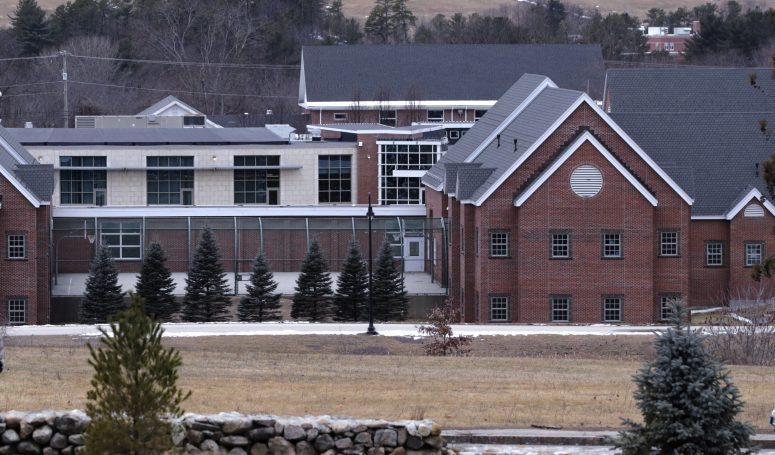CONCORD, N.H. (AP) — The criminal charges against former youth detention center workers in New Hampshire span 14 years, but a judge is deciding whether prosecutors can share four decades worth of mostly confidential records with defense attorneys.
Ten former workers at the state-run Youth Development Center in Manchester and one from a pre-trial facility in Concord were charged in April with either sexually assaulting or acting as accomplices to the assault of more than a dozen teenagers from 1994 to 2007. The center, now called the Sununu Youth Services Center, has been the target of a criminal investigation since 2019, and more than 300 men and woman have come forward with allegations involving 150 staffers from 1960 to 2018.
Prosecutors already have collected and scanned nearly 730,000 pages of juvenile resident records, daily logbooks and other materials from the 1990s alone, and are in the process of obtaining records from 1980s and from the last 20 years. They recently reached an agreement with defense attorneys to privately share all that information, plus 300 video and audio files, but a judge declined to sign off on it pending a hearing late last week.
Judge Will Delker expressed doubt about whether there was an “essential need” to disclose not only the records of former residents who have made allegations and given permission to share their information but the roughly 3,000 others who spent time at the facility in the 1990s. He also raised questions about the need to notify those former residents, and asked attorneys why they weren’t limiting discovery to a few years on either side of the defendants’ employment.
Senior Assistant Attorney General Timothy Sullivan said records dating to the 1980s and earlier are relevant because employees from that time might come up at trial.
“There are staff members in that time frame where there are allegations of abuse, and those individuals end up becoming the supervisors of the people that are there in the 1990s and 2000s,” he said. “That’s why the timeline becomes so important.”
Defense attorneys agreed that the information should be turned over. Several noted that their clients agreed to waive probable cause hearings in exchange for receiving documents from the state quickly, but they’ve now been jailed for nearly two months without receiving any.
“We need to get started now. Frankly, we needed to get started 60 days ago,” said public defender Tom Stonitsch, representing Jeffrey Buskey.
Richard Guerriero, who represents James Woodlock, said he agrees that defense attorneys should have the same access to the records as prosecutors but said he expects to file a motion seeking to force the state to define which are relevant to each defendant.
“I believe there’s going to be a point in this case where the state is obligated to say, ‘We limit this case against your client to this world of information,’” he said. “There’s two ways to keep the defense from learning information. One way is to give them nothing. Another way is to say, ’Here’s a million pages and you find what’s relevant.”
Guerriero also argued that the 300 former residents who tried to join a class-action lawsuit against the state essentially have waived confidentiality. A judge last week dismissed the lawsuit but allowed individual claims to go forward, and the lawyer representing the victims plans to proceed with hundreds of individual lawsuits.
(Copyright (c) 2024 The Associated Press. All Rights Reserved. This material may not be published, broadcast, rewritten, or redistributed.)

